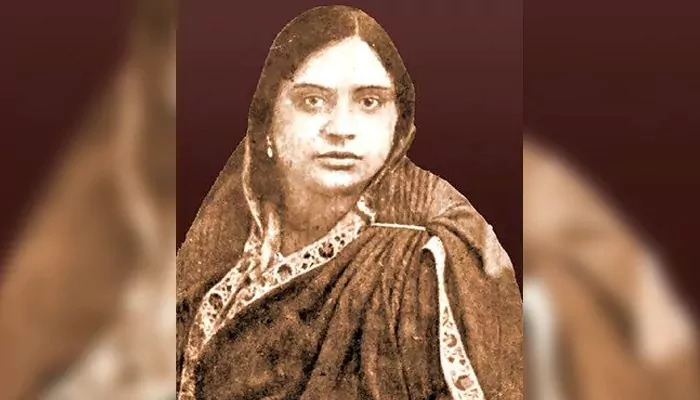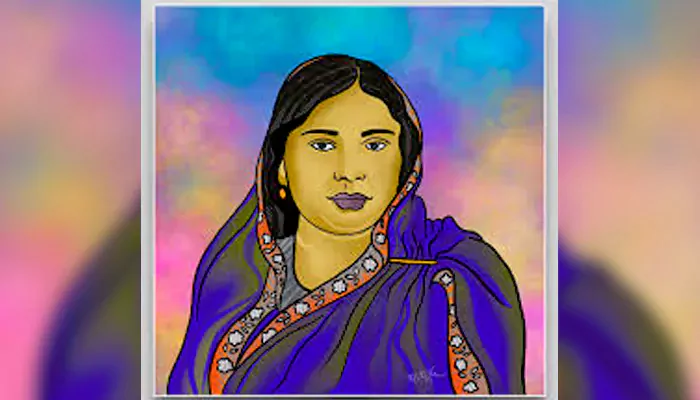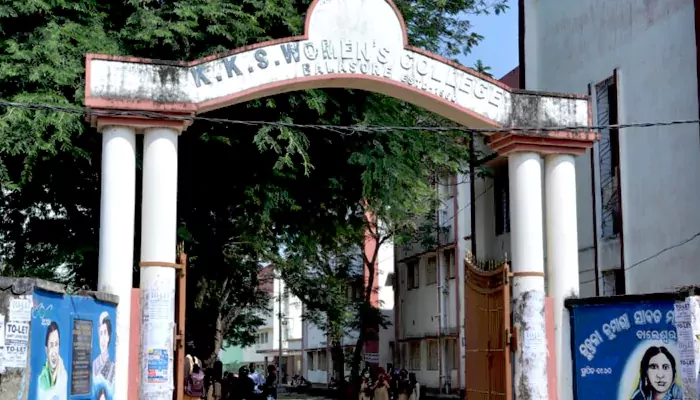
Her words were weapons, and her rhymes, revolutions
Kuntala Kumari Sabat was no ordinary poet. At a time when Indian women were expected to stay silent, she thundered through the literary world with her pen. Born in 1901 in Jagdalpur, then part of Odisha’s cultural orbit, Kuntala lived during one of India’s most turbulent chapters — and made sure her poetry added to the storm. Her verse wasn’t soft or ornamental. It was fire. It was resistance. It was rebellion with rhyme.
While most knew her as Dr. Kuntala Sabat, a gold-medalist physician from Cuttack’s Orissa Medical School, few realised her clinic was not the only place she healed wounds. Through her poetry, she stitched up the torn pride of a colonised people. Her medical career gave her access to the lives of Odisha’s women, farmers, and labourers — people she later immortalised in her poetry. Their pain became her protest: their silence, her song.

Kuntala’s first collection of poetry, Uchhwas, appeared in 1924. Archana, Sphulinga, and Ahwan quickly followed it. These weren’t just poetic expressions — they were political manifestos. She used her words to rally the youth of Odisha, to awaken them to the nation’s call for swaraj. In Ahwan — meaning “The Call” — she urged her readers to rise against British rule. Her verses echoed Gandhian ideals but weren’t limited to non-violence; they demanded justice in all forms, social and political.
Long before gender rights became a rallying cry, Kuntala was writing against child marriage, caste discrimination, and the purdah system. She believed women must not only be educated but also heard. In 1931, she presided over the All-Orissa Women’s Conference, where she challenged societal norms and called for women’s leadership in the freedom struggle. This was no token participation — she was leading from the front.
Kuntala’s poems weren’t always confrontational. Some, like her tributes to the moon, the lotus, or the evening stars, revealed her lyrical grace. But even in those quiet moments, there was a simmering tension — a desire for a better world. Her poem Gadajata Krishaka is a searing portrait of the life of a peasant under princely misrule. In it, she writes not just as an observer, but as a voice for the voiceless.
In the late 1920s, after marrying Krishna Prasad Brahmachari, Kuntala moved to Delhi. There, she edited several journals, including Mahavir, Jivana, and Nari Bharati. She also began writing in Hindi, expanding her reach beyond Odisha. She gave speeches at universities, wrote essays on the responsibility of writers, and built bridges between Odisha’s literary world and India’s nationalist movement. She was no regional writer; she was a national thinker.
Kuntala Kumari Sabat died in 1938, at just 37 years old. Some accounts say she passed away shortly after childbirth. Her death was a significant loss to Odisha and India’s cultural and political life. But her legacy lives on. She was honoured with the title “Utkala Bharati” — Odisha’s Saraswati — for her literary and national service. Today, schools, scholarships, and awards bear her name. But more importantly, her words still burn on the page.

In one of her essays, she wrote: “A poet is not bound to nation or time. She must speak the truth.” And speak she did. In an age when voices were censored and rebellion punished, Kuntala Kumari Sabat chose courage. Her poetry was not just art. It was action.
Her verses didn’t plead. They demanded. They didn’t whisper. They roared. And they still echo in the fight for justice.